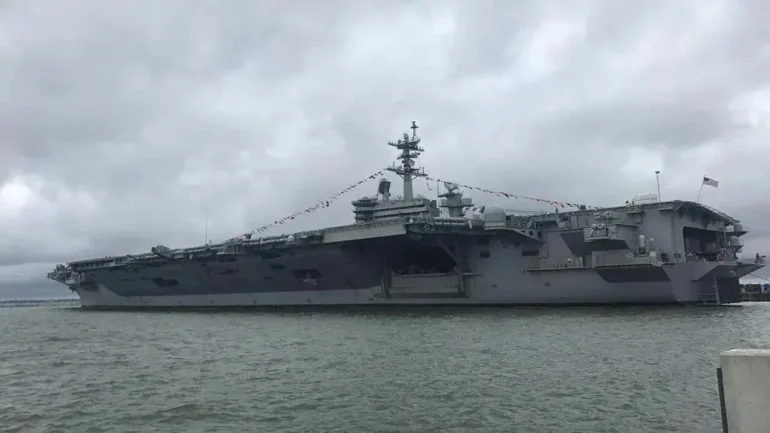WASHINGTON — In a bold escalation of the Trump administration’s war on drugs, Defense Secretary Pete Hegseth announced a new military mission called “Operation Southern Spear” on Thursday. The operation aims to eliminate “narco-terrorists” from the Western Hemisphere and block the flow of deadly drugs into the United States.
“President (Donald) Trump ordered action — and the Department of War is delivering,” Hegseth posted on X, the social media platform. He described the mission as one that “defends our Homeland, removes narco-terrorists from our Hemisphere, and secures our Homeland from the drugs that are killing our people.” Hegseth emphasized that “the Western Hemisphere is America’s neighborhood – and we will protect it.”
The operation will be led by Joint Task Force Southern Spear under U.S. Southern Command (SOUTHCOM), which oversees military activities in Central America, South America, and the Caribbean. However, details remain sparse, and it’s unclear how this initiative connects to previous efforts with the same name.
Confusion Over the Operation’s Name and Scope
This isn’t the first time “Southern Spear” has been mentioned. In January 2025, the U.S. Navy’s 4th Fleet announced a different Operation Southern Spear focused on using robotic and autonomous systems to detect and monitor drug trafficking in maritime areas under SOUTHCOM. That earlier version was described as a way to test new technology for counternarcotics operations.
Hegseth’s announcement has raised questions about whether this is an expansion of the January program, a rebranding, or something entirely new. The White House deferred questions to the Pentagon, which did not respond to requests for clarification. The Pentagon also referred inquiries back to Hegseth’s social media post.
Adding to the uncertainty, the administration has been ramping up military pressure in the region. In early October, Hegseth formed a new counternarcotics joint task force based around the II Marine Expeditionary Force to “crush” drug cartels in the Caribbean. SOUTHCOM Commander Adm. Alvin Holsey, who is retiring later this year, said at the time that the task force would help “detect, disrupt, and dismantle illicit trafficking networks faster.”
Recent Military Actions and Buildup
The announcement comes amid intense U.S. military activity in the area. On Monday, the military conducted its 20th lethal strike against a suspected drug-trafficking boat in the Caribbean Sea, killing four alleged “narco-terrorists,” according to a Pentagon official who spoke anonymously to The Hill. Since the counternarcotics campaign began in early September, at least 80 people have been killed in strikes across the Caribbean and Eastern Pacific. The administration argues these actions are necessary to stop illegal drugs from reaching U.S. shores.
The U.S. has also deployed significant forces to SOUTHCOM’s area of responsibility, which covers more than 30 countries. This includes warships, F-35 fighter jets, spy aircraft, and other assets. On Tuesday, the USS Gerald R. Ford—the world’s largest aircraft carrier—arrived with its strike group. The carrier carries over 4,000 sailors, F/A-18 Super Hornet fighters, and long-range Tomahawk missiles.
Reports indicate the buildup is partly aimed at Venezuelan President Nicolás Maduro, whom the Trump administration calls an “illegitimate leader.” CBS News reported that during a Wednesday White House meeting, Hegseth, Joint Chiefs Chairman Dan Caine, and other top officials briefed President Trump on military options for Venezuela, including potential land strikes.
Broader Context in the Trump Administration
Hegseth’s announcement fits into a busy week for the administration. The federal government reopened after a record 43-day shutdown, with employees returning to work and back pay expected soon. Trump signed an executive order to help foster children transition to adulthood and revoked Biden-era limits on oil drilling in Alaska’s National Petroleum Reserve.
Other developments included lawsuits against California over new congressional maps, accusations of mortgage fraud against Democratic officials, and ongoing scrutiny over Trump’s past ties to Jeffrey Epstein. However, the potential for military action in Latin America has drawn particular attention, with some observers worrying it could lead to broader conflict, possibly in Venezuela.
As Operation Southern Spear moves forward, the lack of clear details leaves room for speculation. The mission underscores the administration’s aggressive stance on drug trafficking, but its full scope—and risks—remain to be seen.
